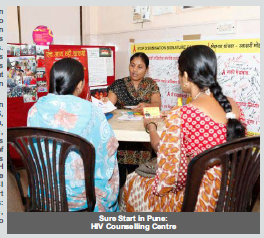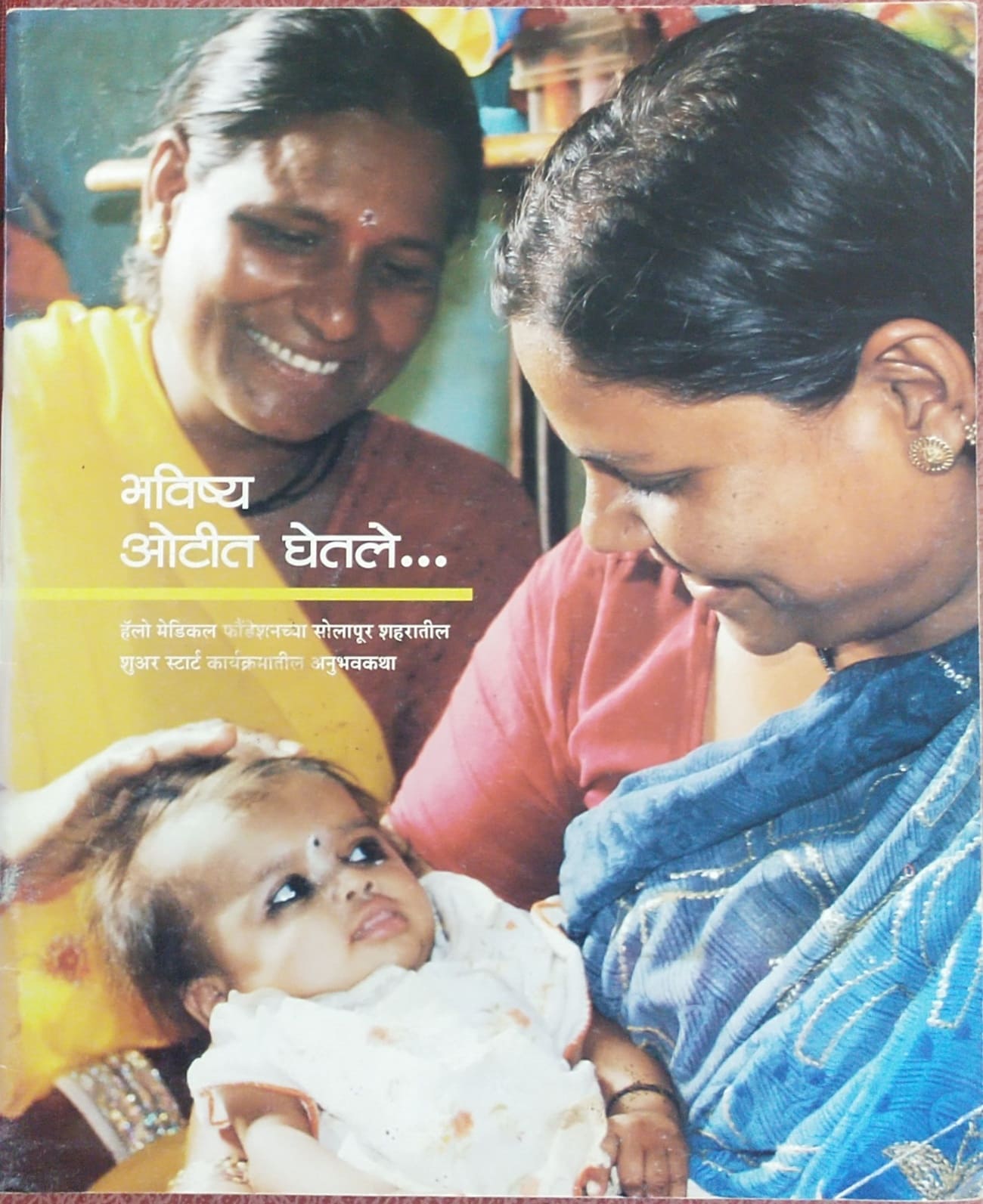Key Feature
This project demonstrated an innovative model for the democratization of health care that promoted community ownership for the antenatal and postnatal care of its women. Keeping women at the helm of providing such care, HMF mobilized local community-based women’s organizations/groups in 80 underserved communitiesin Solapur city and built their capacities. This model was later adopted by the Solapur Municipal Corporation.
About SureStart Project Methodology/Strategy:
This innovative Sure Start model used the following strategies:
- Community-based women’s organizations/groups, mostly Self-Help-Groups (SHGs), were encouraged to ‘adopt’ pregnant women and lactating mothers to ensure that they get adequate antenatal and postnatal care. Where required HMF assisted the community in establishing new SHGs.
- Extensive training of SHGs equipped them with the necessary knowledge and skills in MNH.
- Partnerships were established with local college-going students who volunteered to help in implementing the project. They were trained in ‘Behaviour Change Communication’ (BCC) techniques and to support SHGs.
- Auxiliary Nurse Midwives (ANMs) and Anganwadi workers trained for better quality services
- Such educational activity was also extended to adolescent girls and elderly women also, so that they learn the importance of self-care and take responsibility for themselves as well as for women needing MNH.

Reorienting provider-recipient health model → community ownership model “for the people, by the people, of the people”
The ‘ten-point project’ - objectives:
Registration of pregnancy within 12 weeks
At least 3 Antenatal Care check-ups by a qualified gynaecologist
2 TT Injections
Consumption of at least 100 Iron-Folic Acid tablets
Immediate referral of pregnant women with danger signs
Institutional Delivery
Breastfeeding within 1 hour of delivery
Thermal care
Immunization of neonate for Polio and BCG
Advice for family planning
Reach/Coverage:
– 80 underserved communities in Solapur with an overall population of 176,094
– 178 community-based organizations, 155of which were Self Help Groups (SHGs) and 23 of which wereother women groups that were not SHGs
– Nearly 12,000 ANC mothers adopted
Partnerships
– 231 community volunteers
– 206 college volunteers who were trained in maternal and neonatal health, gender equity, communication skills, and documentation.
– Local ambulance companies
– Health Department of the Solapur Municipal Corporartion and its Integrated Child Development Scheme (ANMs and Anganwadi workers)
– Local cable Television network – for dissemination on role of SHGs.
Achievements:
Community volunteers conducted a population survey of 24,553 families and identified 11,500 eligible couples for surveillance. End-line evaluation of the project (June 2011) showed
• 85% of pregnancies registered within 12 weeks
• 99% of women received 2 TT Injections
• 98% of pregnant women had institutional deliveries
• 99% of pregnant women with danger signs received treatment
• 100% treatment of complications during delivery
• 89% of newborns weighed 2.5 kg or greater
• 100% of women utilized thermal care
• Solapur Municipal Corporation accepted the model and made financial provision
Financial partner
PATH, USA provided the necessary funds for this project
